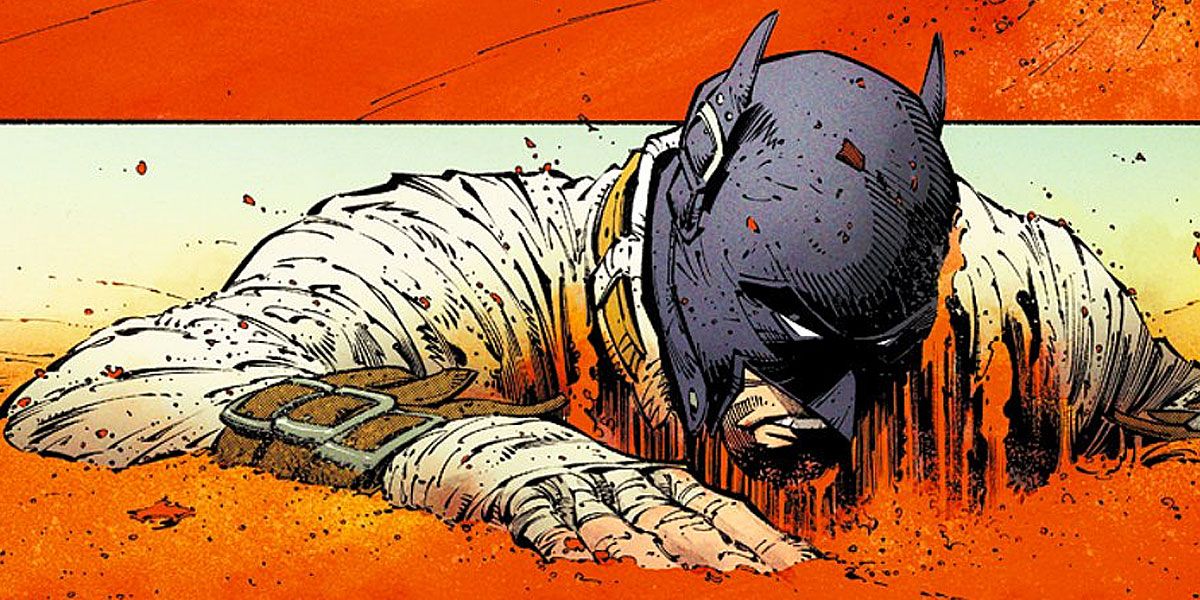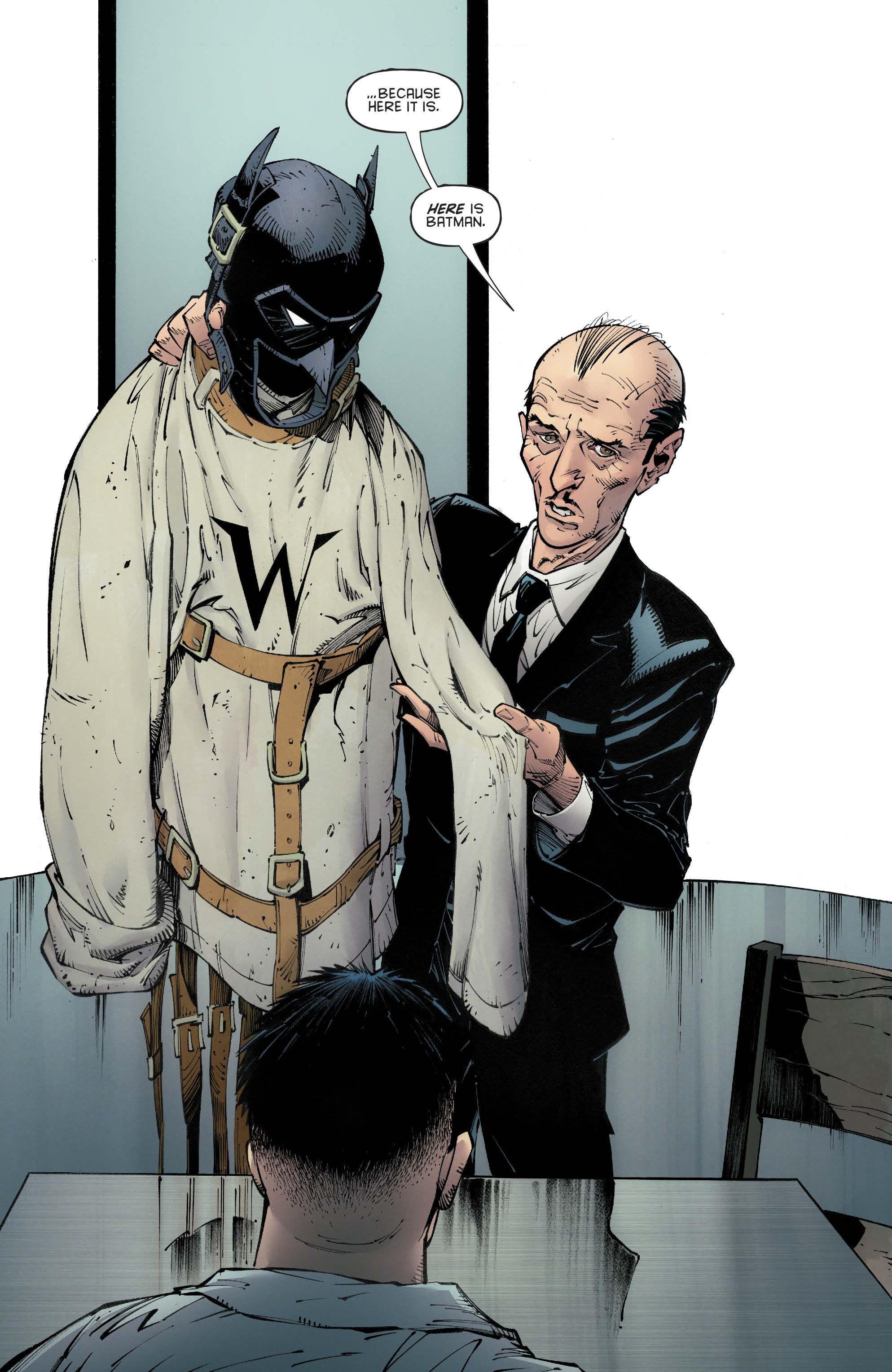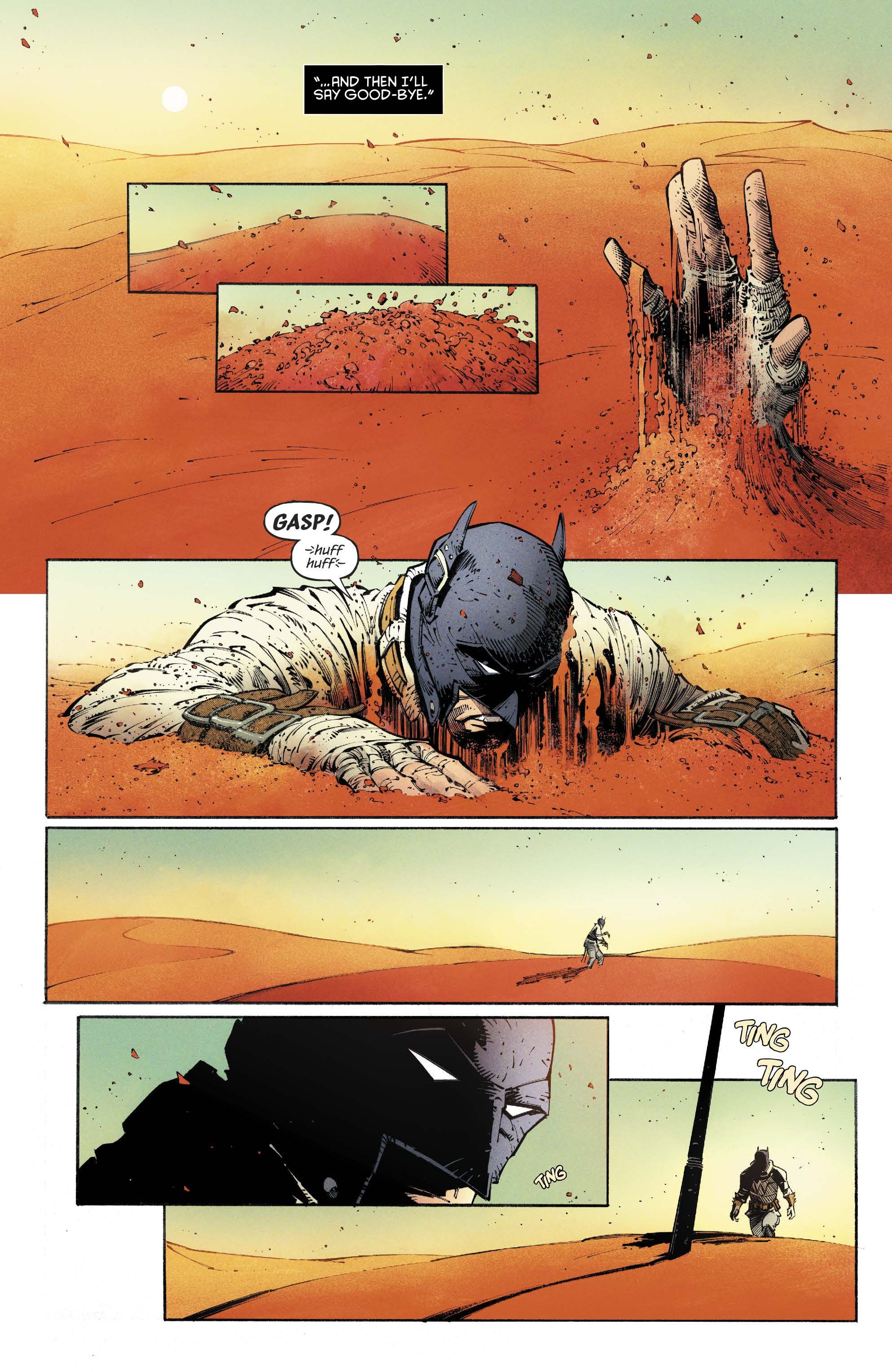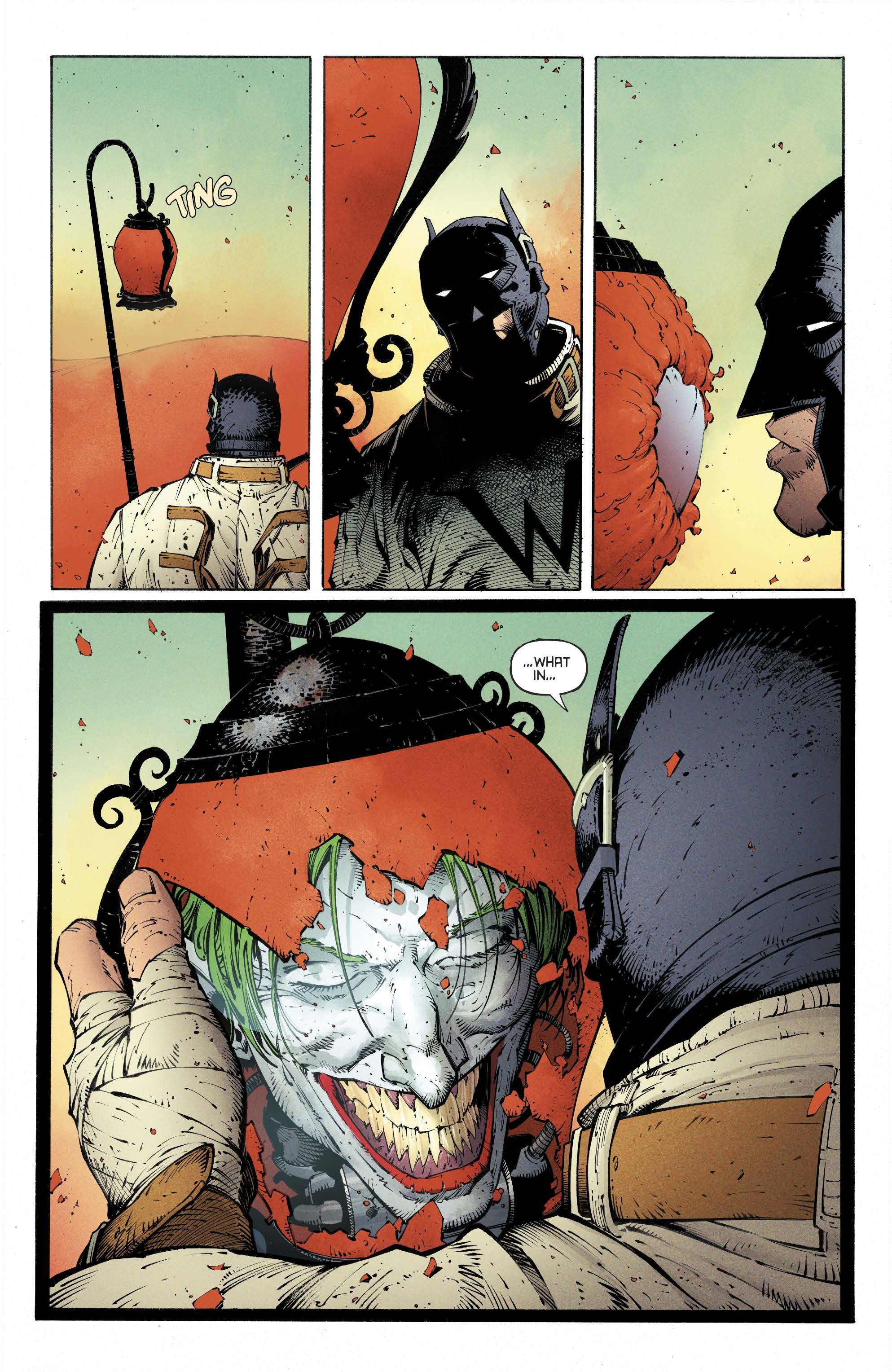For almost a decade, Scott Snyder and Greg Capullo have proven the Batman team supreme at DC Comics. From their massive run through the publisher's New 52 era, to the cosmic epic that was Metal, the writer/artist duo and a host of regular collaborators have added more to the Batman canon than any other team in the 2010s.
But this week marks the true beginning of the end of their time with the Caped Crusader with Batman: The Last Knight On Earth – a new prestige format miniseries from DC's Black Label line that promises to be the pair's last Bat-story, ever.
Ahead of the series' debut, CBR spoke with the storytellers about how they came back to the hero after bowing out when DC's Rebirth era hit, and as Snyder and Capullo tell it, their last Batman story not only serves as a capper a run that reinvented Joker as a horror character and remade Gotham as a fictional landscape, but Last Knight also serves to question the meaning of Batman for both Bruce Wayne and the readership.
CBR: Tell me about your evolution to this story. People who have followed you from the New 52 relaunch know that you went from being strangers who were unsure of working together to becoming comics greatest bromance. What in that journey prompted this series? Was it just the chance to keep the team working or a feeling of unfinished business with Batman?
Scott Snyder: This story has been kicking around in my head a really long time. It was kind of around the time we did Zero Year, and it came from this suggestion from Grant Morrison when I was freaking out about starting. He told me to really own your version and make up an origin story and a death – or an ending story – for your Bruce. So this has lived in my imagination for a long time. I did feel there was one more story we could do together, but I was okay if we didn't get the chance. Then, when Black Label opened up, we knew we'd have the time and the space to do it justice and make it special, where it would exist outside the grind of monthly comics. That really opened up my eyes to it. I'm really thrilled that we're getting to do it.
For Greg and I, we've done so much Batman, and there are so many other things we want to do, so we wouldn't do another Batman story unless it was something special. There's no reason for us to moonlight on Batman anymore. It's great that the fans like us on it, and I have plenty of stories I never got to do, about everyone from Scarecow to Zas. But I feel like there are bigger challenges for us, and we haven't gotten to do so many other characters here and at Marvel. Especially, we haven't been able to do something that was all our own. So if we're coming back to Batman, I hope the fans know that this is an important story to us.
Greg, did you approach this thinking, "All right, I can do Batman one more time" or did you get excited at the prospect of closing your run out in this fashion?
Greg Capullo: Well, it's never a bad thing to say, "I get to draw Batman." [Laughs] But the thing is that our careers as creators in comics are limited. You have your moment, and then it's over. Like Scott said, we have so many things we want to do, and the longer we stay in one place makes it harder to do those things. You really want to explore more ideas and other areas. But the other thing for me is that I've watched TV shows that I love, and they go one season too long or two season too long, and you go, "Ugh. They ruined it." So right now we're lucky that the fans still seem to love us, and we love them back. And we'd like to keep it that way! I'd rather that we step off when people still like us rather than be ready to stone us and petition DC to get fresh blood in there. This will sounds weird, but I'm happiest if their hearts are broken that we're leaving. Because that means they won't end up tar-and-feathering us, they're just so sick of it.
Flipping through the issue, it definitely has a different visual feel and a lot of breathing room as a prestige format Black Label book as opposed to that more rigid 20-page monthly. How much did that change what this story could be?
Snyder: That was the whole attraction for me. We've done all kinds of stories with Batman, and the DC Universe with Metal, but the one thing we never got a chance to do, honestly, in our entire time working together was something that wasn't under the monthly pressure. We've never had a chance to work in a bubble and make something with more time and space to explore and experiment. So the whole attraction for me was doing a Batman story in a different way, and take our time to make something outside that machine.
Capullo: Agreed. The extra time allows me to keep my sanity, which Scott and my wife will tell you I've been working on. Instead of getting faster as a result of doing this over the years, I'm getting slower because I am striving for things that probably no one will notice. But I will finish a drawing and say, "That head needs to be tilted one-sixteenth more to the left." And then I'll erase it and redraw it until it's completely done and refined, and then I'll go, "You know what? The other way was better." It's those little, tiny changes that you make when you're dealing with human emotion and body language and expression that can make big sweeping emotions felt. With the extra time [on this book] it allows me to lean into my neuroses and obsess over every detail. And I'm one of these guys who when it's not going like I want, I'll just shoot the 12-hour day I just put in. I'll scrap it and say, "I can make it better." So with the extra time, I'm doing that even more so.
Speaking of things that can drive you mad, the initial hook of the book is fascinating. We're seeing Bruce's sanity being questioned by society, and beyond the pulpy mystery of that, it also gets at this broader question of the idea of Batman. It seems to ask the reader, "Is dressing up and fighting crime really an ideal worth looking up to?"
Snyder: Yeah. The whole purpose of the book is to have Bruce reexamine what it means to be Batman. The idea is that this is a world that has rejected its heroes in favor of villainy. It doesn't want anything from a Batman anymore. Each section of the book investigates a different aspect of Batman having to look at who he is and what he does. He may have to come to terms with the idea that he may have to rethink all of it.
If you look at the opening mystery, somebody clearly knows that he's Batman and has placed a child in the alley. They're trying to tell him that everything he's done is wrong. And when you read it, you'll see what that has to do with Joe Chill and with his parents. The next section is in Arkham, and Alfred tells him, "You shouldn't even open that door. Don't come out of your cave." Then the third section is out in the world, where the only familiar thing to him is the Joker, and he uses his head like a lantern. Batman is only looking forward, never back. The book is constantly pushing Bruce to look at Batman and say, "Is there a place for him in this world? Is it worth it? If it is, why?"
It seems like the pair of you gravitate towards unexpected visuals for Batman. Sometimes that's horror imagery, and sometimes it's just color choices. What were the images that you had to fit into this last story?
Capullo: Well, like Scott said, the Joker's head in the jar with Batman carrying it around was up there. It's all Scott. He has the ideas. He presents the ideas to me. I only have a small bit of credit in bringing those visuals to life. Anything you can mention [from our run], that's what the art's effect is. I'm the construction guy who comes in and, hopefully, does a nice job. I put it all on Scott, and I'm just along for the ride. There's always going to be fun stuff to draw, and yeah, he's got a horror streak in him. I thought I was getting away from it when I left [Todd] McFarlane, and later [Robert] Kirkman, but they keep dragging me back into that end of the pool. [Laughter] But that's all Scott. I get the fun of being the eight-year-old on the floor in his underwear with a sketch pad saying, "What does that look like?"
Snyder: For a second, I thought you meant what does it look like, you lying there in your underwear. [Laughter] But let me add to that, because it's not wholly true. The reason I end up coming up with a lot of this stuff is because I can see Greg drawing it. He inspires a lot of what comes in without knowing it. Thinking about what he might do with an idea makes that idea have legs for me. I start thinking about "I'll try that because he'll not only deliver that but do better than I expect." Otherwise, there are a lot of things I might not even think of.
Big picture, do you feel that The Last Knight works as a "last" Batman story? It's obvious that Batman stories will continue long after we're all dead, but from your point of view, do you want to create this as if there's never another Batman story after this?
Snyder: I think of it as our Batman. What's going on with the character right now is so multi-faceted and exciting. What Tom [King] is doing is great. What Pete [Tomasi] is doing on Detective is great. In farther corners of the DCU, what Brian [Azzarello] and Lee [Bermejo] are doing on Damned is great. This is more our version of the character and our take. It's really singular and ours. We did an origin that gave him a birth in Zero Year, and then this is his end. I don't think of it as a last Batman story. I think that we were lucky enough to do our own take on the character that was unique to us, and this closes the book on that version. It's one version among many great
Capullo: My response is a lot more simplistic. To me, this is no different than the very first thing we did together. We both just wanted to do our very best work. We love what we do. We love the character. And we don't want to let the fans down. To me, it's just another day in the office, and I'm doing the best I can and treating it like I'm trying to get a job instead of having had a job for decades.
To wrap up, do you guys plan on having this story feature callbacks or full circle moments to your run up to this point?
Snyder: 100%. There are a lot of callbacks to things from earlier in our run. I don't want to give anything away, but there are characters and ideas and themes that will tie it all together – especially by the time we get to Book 3.
Batman: The Last Knight #1 is in stores this week from DC Black Label.





